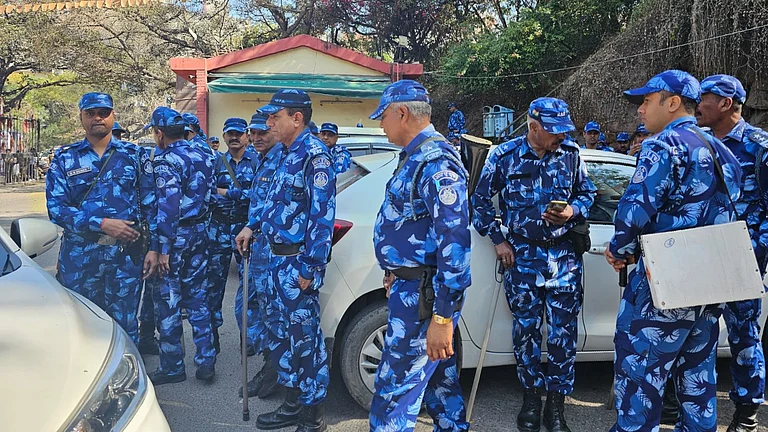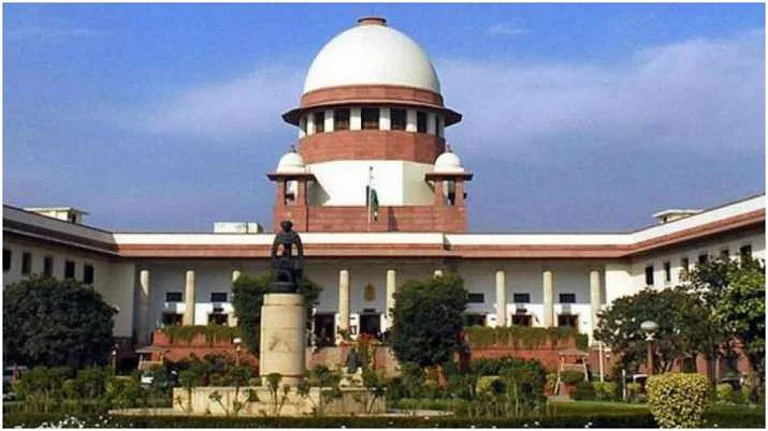The first set of citizenship certificates under Citizenship Amendment Act (CAA) has been issued, the Ministry of Home Affairs said on Wednesday, adding that 14 were people given Indian citizenship.
Union Home Secretary Ajay Kumar Bhalla handed over citizenship certificates under CAA to first 14 people in New Delhi, the MHA said on Wednesday.
The Prime Minister Narendra Modi-led central government on March 11 made the controversial Citizenship (Amendment) Act (CAA), 2019, a reality by notifying rules for it, a move that came four years after the contentious law was passed in Parliament.
After the enactment, the CAA got the president's assent but the rules under which the Indian citizenship was granted were issued only on March 11.
The implementation of CAA paved the way for citizenship to undocumented non-Muslim migrants from Pakistan, Bangladesh and Afghanistan, allowing the Modi government to now start granting Indian nationality to persecuted non-Muslim migrants -- Hindus, Sikhs, Jains, Buddhists, Parsis and Christians -- from the three countries.
A PIB press release said on Wednesday, "The Government of India had notified Citizenship (Amendment) Rules, 2024 on 11th March 2024. The Rules envisage manner of application form, procedure for processing applications by District Level Committee (DLC) and scrutiny and grant of citizenship by State Level Empowered Committee (EC). In pursuance of these rules, applications have been received from persons belonging to Hindu, Sikh, Jain, Buddhist, Parsi and Christian communities from Pakistan, Bangladesh and Afghanistan who have entered into India up to 31.12.2014 on account of persecution on grounds of religion or fear of such persecution."
The District Level Committees (DLCs) chaired by Senior Superintendents of Post/Superintendents of Post as designated officers, on successful verification of documents, have administered oath of allegiance to the applicants, the press release mentioned, adding that after processing as per rules, DLCs have forwarded the applications to State Level Empowered Committee headed by Director (Census operation)." Processing of application is done completely through the online portal.
Implementing the controversial CAA rules of which were notified a month before the expected announcement of the Lok Sabha election 2024 dates, was a major poll promise of the Bharatiya Janata Party (BJP) in the last Lok Sabha polls.
The passage of CAA in Parliament in December 2019 had sparked massive protests in parts of the country.
After the implementation of CAA rules, Home Minister Amit Shah had said Prime Minister Narendra Modi has "delivered on another commitment and realised the promise of the makers of the Constitution."
1-yr Stay Needed For Those Seeking Indian Nationality | What Do CAA Rules Say
Those seeking Indian nationality under the Citizenship (Amendment) Act, 2019, will become eligible to apply after spending at least 12 months in India preceding the date of the application, according to the CAA rules notified on March 11.
Further, during the eight years immediately preceding the 12 months, the applicants will have to spend not less than six years in the country to be eligible to get the India citizenship, the CAA rules said.
The applicants will also have to give a declaration that they "irrevocably" renounce the existing citizenship and that they want to make make "India as permanent home", according to the rules.
What Is CAA? Will It Take Take Away Anyone's Citizenship?
The Citizenship (Amendment) Act, 2019, seeks to grant Indian citizenship to refugees who had sought shelter in India before December 31, 2014, due to religious persecution in three neighbouring countries -- Pakistan, Bangladesh and Bangladesh. The six persecuted communities are Hindus, Sikhs, Buddhists, Jains, Parsis and Christians.
The Citizenship (Amendment) Act, 2019 will not take away citizenship of any Indian irrespective of their religion, a news agency PTI report cited sources as saying.
The citizenship rights will protect their cultural, linguistic, and social identity and it will also ensure economic, commercial, free movement, and property purchase rights.
The law will remove legal barriers to rehabilitation, and according citizenship will give a dignified life to the refugees who have suffered for decades, the above mentioned sources said, adding that many misconceptions have been spread regarding the Citizenship Amendment Act.
This is a law to give citizenship and not take away citizenship of any Indian irrespective of their religion, the official said and added the act is only for those who have suffered persecution for years and have no other shelter in the world except India.


























